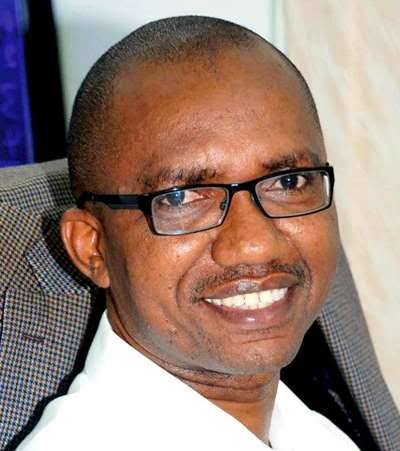Problems of Reforms in Nigeria: A test for President Tinubu, by Adefolarin A. Olamilekan
A modest inquiry into Nigeria’s macroeconomic developments post-military era from 1999 has been such momentous years. Despite the huge expectations of economic growth targeted to translate into meaningful development, the country still grapples with recurrent setbacks.
Instructively, one act that has never been in short supply is the initiative to reform. Succinctly, space will not permit us to list all reforms carried out by the Nigerian State. However, worth mentioning is reforms in job creation, the power sector, oil and gas, agriculture, and public services.
In our view, reforms initiated or undertaken are to help manage scarce resources, achieve optimum benefits and be effective in sustaining any nation’s finances.
READ ALSO: Paris Finance Summit, promises or dilutions?, by Adefolarin A. Olamilekan
In reminiscence, the general elections held in February 2023 brought about another democratic transition of power. The All-Progressive Congress (APC) being the ruling party was able to retain the Presidency and majority seats in the National Assembly, Governorship and States Assembly in a tension-soaked election contest.
Palpably, there are heightening expectations for meaningful economic progress with President Bola Ahmed Tinubu having been sworn in as the 16th President of Nigeria. Tinubu’s government is coming into power during a very challenging time, marked by global oil price uncertainty, surging costs of things and food inflation, fattening corruption and continuing violence in the country’s northwest, northeast and north-central. This perhaps creates a difficult context for the new administration, as well as its latest ambitions to reform the nation’s financial system.
Meanwhile, Tinubu’s government as part of its responses to challenges on the ground takes action on several long-delayed policies, often against vocal opposition.
Notably, the Government has floated and unified the foreign exchange rates; removed fuel subsidies; adjustment of electricity tariffs toward cost reflection; begun a process to enhance debt management, and to increase public sector transparency.
As if the foregoing was not enough, President Tinubu is to reform the nation’s financial system and budgetary process. The President stated this in Lagos when he was hosted by Governor Babajide Sanwo-Olu, at the Lagos House, Marina. The President declared that “We have to re-engineer the financial system of the country and see that our economic planning and the budgetary process is transparent enough to cater for all Nigerians”
He reiterated that he had to remove the fuel subsidy to stop the bleeding in the nation’s finances. In his word “We must re-engineer the effectiveness of control and management of our resources in order to meet the obligation owed to Nigerians by politicians” This was also in addition to his promise to “operate an open-door policy and work together with the state governors to achieve true federalism”
In retrospect, financial system reforms began in Nigeria with the deregulation of interest rates in August 1987. Since then, far-reaching policy measures including the chartering of new banks, reform of the capital market and a move from direct to indirect monetary controls have been undertaken. However, in recent times, the Federal Government did carry out reforms such as Government Integrated Financial and Management Information System (GIFMIS), Treasury Single Account (TSA), Integrated Personnel Payroll Information System (IPPIS), International Public Sector Accounting Standards (IPSAS) implementation.
And of note is the Finance Act 2021, which brought about amendments to the Capital Gains Tax Act, Company Income Tax, FIRS Establishment Act, Personal Income Tax, Stamp Duties Act and Tertiary Education Act, Value Added Tax, Insurance Act, Police Trust Fund and the Fiscal Responsibility Act. These are financial reforms to domestic revenue mobilisation, transparent tax administration, tax equity, and towards improving public financial management processes, to help the Government maximise its resources.
Consequently, the financial reforms were to serve as an engine of growth for the economy. However, many of these reform initiatives as critical as they were, are not without their gaps and weakness. This raises the question of whether reforms really work or is sufficient enough to be embarked upon.
Interestingly, for us, the answer has two major parts. The first part turns to the problem or challenges that necessitate reforms. For instance, over the years the country has had to deal with the problem of multiple taxation and the government responded to the challenge with Finance Act 2021. Meanwhile, the issues of multiple taxation are still very much around, particularly at the subnational level.
The second answer is about the understanding of what the cost implications of reforms are, either, financial, human resources and/or goal intention related. Essentially, reforms are cost-intensive, we can’t rule that out.
But the costs must relate effectively to intended goals, short-term, medium terms, and long-term. Meaning, results coming from reforms must be sustained. In our case, it has not materialized to this point. A good example is the reform of the electricity sector, which has not given us a sustained positive result, even when the intended goal of reforming the sector was a target of 10,000 megawatts of electricity.
Having said, this now brings to bear the concerns over President Tinubu’s reforms’ target of the financial system and budgetary processes. This for us is important, prompting across the following questions. What is wrong with our current financial system? What solutions is President Tinubu adopting for a transparent budgetary process? What form of the financial system is re-engineering? What procedure of the budgetary process is to be implemented? How would the economy fare under this reform?
To many these questions may not be necessary. Indisputably, any reader would read this and think, it’s ridiculous to ask. It is important for critical minds, chiefly because the flip side of reforms as stated earlier in this piece, acknowledges reforms as bold initiatives in key areas of a nation economy’s targeted to break the cycle of low growth, high poverty, slow job creation, and fragility.
Moreover, across the world, no country is free from the daily problems of managing its economic affairs and the well-being of its citizens, without initiating reforms when necessary. Sadly, the difference is that here in Nigeria, we are not results-oriented, rather our mindset is favoured towards fault-finding, personal interest, and accelerate wealth accumulation to the detriment of the nation’s economic growth and development.
In all modesty, President Tinubu’s task of reforming the financial system and budgetary processes in our understanding is driven by his patriotism and loyalty to the fatherland. The challenge before President Tinubu is having a workable and actionable solution to the existing problems on the ground, and plans against unforeseen ones. And this probably, cannot be without reforms suitable for results.
Meanwhile, ours is a contribution to the thinking pot of national development, with critical censures.
As we draw the Government’s attention to the fiscal, monetary, and trade policies crucial to restore macroeconomic stability and lift Nigeria’s growth potential that has been projected upward at 3.3% in 2023, 3.7% in 2024, and 4.1% in 2025, granting the role of global shocks, making this a reality or not, there are here with us. Nevertheless, how President Tinubu deploys domestic policies would eventually determine Nigeria’s economic resilience against the shocks.
What then are our options?
It is important for Tinubu’s government to learn from previous reforms that ended as pervasive government interventions in the financial system, resulting in corruption and resource misappropriation.
Our advice is to build on the immediate, major reforms, and seize the opportunity to correct errors that affect such reforms’ potential.
Again, the Government must ensure a mix of fiscal, monetary and trade policies, as its economic fighting toolkit against high inflation, de-production and poverty.
In this piece, we devote our attention to the subject matter because of its relevance going forward. Our anticipation is for President Tinubu to get it right.
Adefolarin A. Olamilekan
Political Economist
Email: adefolarin77@gmail.com
Tel: 08107407870
Follow the Neptune Prime channel on WhatsApp:
Do you have breaking news, interview request, opinion, suggestion, or want your event covered? Email us at neptuneprime2233@gmail.com





